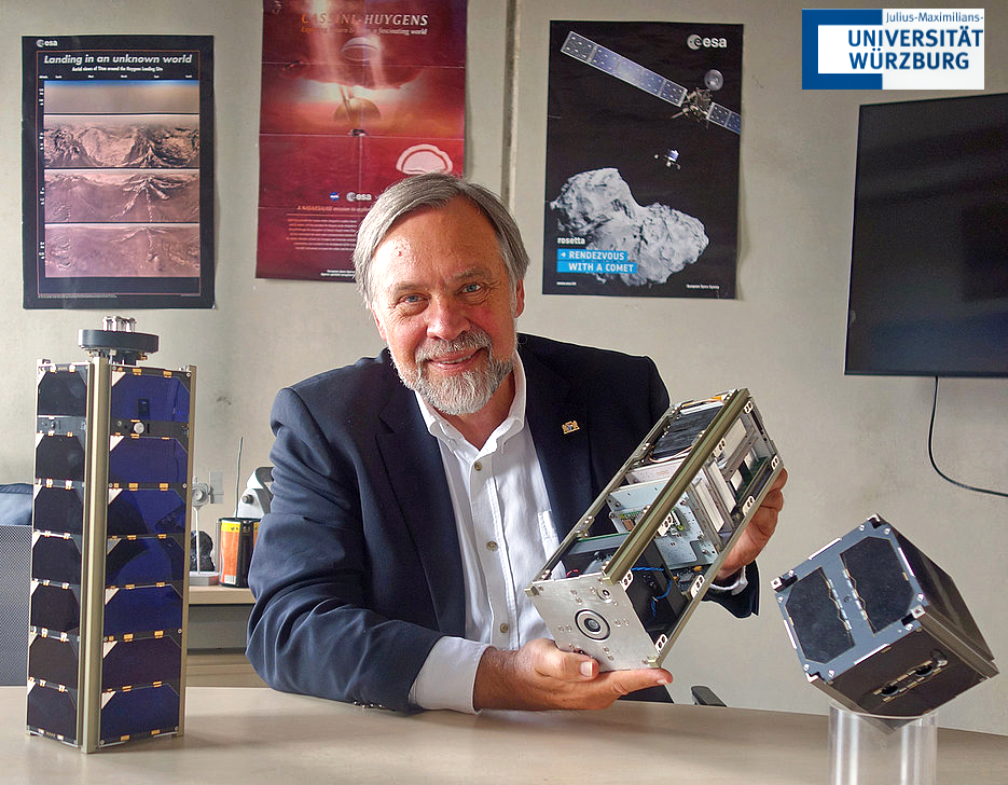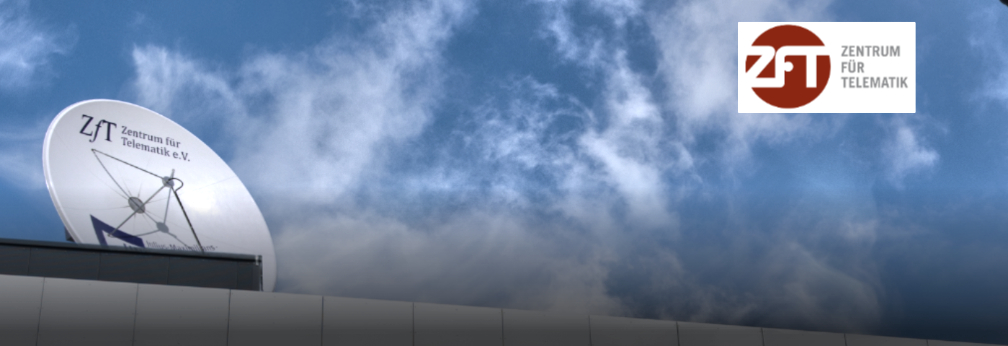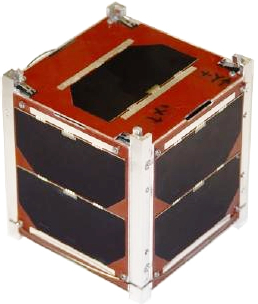
The German Aerospace Society (DGLR) has awarded the prestigious Eugen-Sänger medal to Professor Klaus Schilling (Würzburg) for his outstanding achievements in the development of smallsats.
Advances in miniaturization technology have continuously decreased satellite mass and volume. Smallats already account for the majority of satellites launched into orbit. The shorter construction periods accelerate technology innovations and enable new applications.
“It is crucial that the disadvantages of miniaturization, such as increased sensitivity to harsh space radiation, are to be compensated by intelligent software,” said Professor Schilling.
On the microcomputers on board smallsats, algorithms for rapid fault detection, identification and recovery ensure reliable operation. Building on his experience in the space industry at Airbus, Schilling developed the University Würzburg’s Experimental satellites, or UWE, together with international students at University Würzburg. In 17 years of R&D, his team realized numerous technology breakthroughs for smallsats and proved them… on-orbit.
Today, the UWE satellites are considered a pioneering achievement: in 2005, UWE-1 was the first German pico-satellite with a mass of less than one kilogram. As a consulting professor at Stanford University from 2002 to 2006, he had in the initial period of cubesats in close cooperation with Professor Bob Twiggs, who defined this standard.

While the internet in space was initially in focus of Schilling’s research at University Würzburg, research emphasis for self-organizing, multi-satellite formations followed and crucial technologies were realized step by step until 2020, when the NetSat mission was launched. He was the founder of the private research institute Zentrum für Telematik as well as the company S4- Smart Small Satellite Systems GmbH. Both take advantage of the elaborated technology know how and close the chain to advanced smallsat products for New Space, in particular small and efficient attitude control systems.

Smallsats are already an economic reality and Schilling’s research is focusing on distributed, multi-satellite networks, performing complex joint observations, such as computed tomography, to characterize the interior of clouds for improved climate predictions.

“From the very beginning, Professor Schilling had recognized and promoted the importance of interdisciplinary technological cross-fertilization between computer science, automation, software development and robotics. His satellites impressively reflect this interaction of different components,” said DGLR President, Professor Rolf Henke.
Schilling is very pleased about the medal, which is considered the most important German award in the space sector: “This recognition is a great incentive for our team to continue intensive activities on sophisticated space technology. The medal recognizes contributions, that were only possible through the cooperation in interdisciplinary teams. My special thanks therefore go to the competent international teams that I had the privilege of coordinating.”

The award is named after the rocket scientist Eugen Sänger (1905-1964). In the 55 years of its existence, it has only been awarded 26 times to international space pioneers. Previous recipients were the rocket pioneer Wernher von Braun (1973), the founder of Germany’s largest space company OHB, Manfred Fuchs (1991), and also the astronauts Ernst Messerschmidt and Thomas Reiter (2017).
